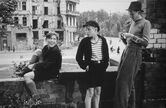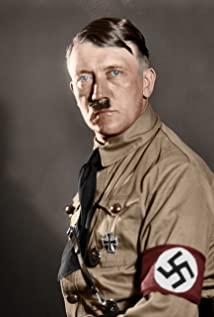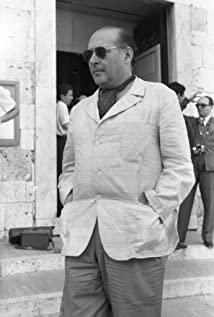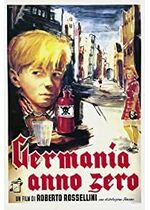-
Letha 2022-03-26 09:01:12
Movies have pictures, which are more enjoyable than novels, but novels can give ten pictures, and if you give one movie resource, you will stumble. The so-called new realism, don't take it too seriously, or you won't understand the essence of Hollywood. The big scene of Gone with the Wind in 1939 is also the set, how about it? Rossini's heart may be there, the talent is second-rate. Aside from the camera, it's all so detached from the set, and the narrative structure and music (especially...
-
Milo 2022-03-26 09:01:12
The last paragraph was pushed forward layer by layer, breaking the heart and breaking the lungs. Edmund is a German, patriarchy and suicide, there is a kind of ignorant tragic and solemn in it. On the one hand, there is a lack of materials and life is embarrassing, and on the other hand, it is a severe trauma to the soul. Which one is deeper, or in other words, which one destroys us in the end? In the end, however, Edmund died, and Deutsche Year Zero had just begun. I think Rossellini still has...
-
Davonte 2022-03-26 09:01:12
Rossellini's post-war trilogy, the second part of the Nazi brainwashing, fascism, and the reproduction of fascism is still partially used today by a certain party and a...
-
Jessika 2022-03-26 09:01:12
In fact, there is already a shadow of Antonioni in the children's play, but the child who killed his father was replaced by a woman who was at a...
-
Francesca 2022-03-26 09:01:12
The final and only film in Roberto Rossellini's "Post-War Trilogy" is set in post-war Germany, and the film was also shot in Germany. The film accuses the war, which not only plunges the people into starvation and poverty, but also distorts the psychology of children. The opening long shot shows the entire ruins of Berlin before the fall of the Nazis in 1945, which is as realistic as it is a trippy trip. In my opinion it is the best of the...
-
Melyssa 2022-03-26 09:01:12
In fact, I slept half of the time~ but the movie is good, the little boy's expression is in...
-
Kaylah 2022-03-26 09:01:12
An Italian director made a German film. The mighty Germany was also a defeated Germany. When the children played vinyl to the soldiers, there was Hitler's speech "Germany's future is infinitely bright!", and that agitation seemed to encourage everyone to come for him. The battlefield worked hard, but the camera immediately swept across a scene of bombed ruins on the street, dilapidated ruins, and a pair of inexplicable grandchildren, extremely ironic; pedophile teacher; Hitler's death group...
-
Tamara 2022-03-26 09:01:12
I really just think it's okay, nothing special, the characters' expressions are dull, but I always feel that the last scene of the little protagonist wandering around has a similar meaning to that of Four Hundred Xia. Post-war barrenness instead forged...
-
Luigi 2022-03-26 09:01:12
Rossellini is really changing, this film is not much different from Rome, Open City. The last paragraph of children wandering through the ruins is interesting. The soundtrack is devastatingly bad, unique to the US...
-
Adalberto 2022-03-25 09:01:19
It is the opposite of "The Bicycle Stealer". From the other side, we look at the life of material scarcity after the war. The distortion of people's hearts under poverty, even a 12-year-old boy is polluted. However, the plot of the remnants of fascism is very predictable! Italian neorealism is full of real compassion for the people at the...
Germany Year Zero Comments
-
Johnny 2022-01-20 08:01:28
Traumatic reality heroism
What is completely different from "The Undefended City of Rome" is that this time Rossellini is telling the story of the "enemy" Germany, but in the film we see that it is the same humanistic care as other neorealisms. The national border regards the poor as the greatest victims of the disaster....
-
Selina 2022-01-20 08:01:28
Cruelty comes from reality
Rossellini is worthy of being one of the three giants of Italian neorealism. After watching the movie in German Year Zero, it made me horrified but sighed.
What frightens me is the indelible harm that war has brought to children. Edmund is a special protagonist of children's movies. He is different...
Top cast
-
Il maestro: Weren't you one of my students?
Edmund: Yes, Mr. Enning.
Il maestro: My memory's good. What's your name?
Edmund: Edmund Koeler.
Il maestro: Edmund Koeler. First desk on the left. You've grown up. How is your father?
Edmund: My father is sick, very sick.
Il maestro: Didn't you have a brother in the Wermacht?
Edmund: Yes, Karl-Heinz. He was in the military, but he's home now.
Il maestro: Then he must be out of work, like me.
Edmund: You're not teaching anymore?
Il maestro: I didn't share the ideas of the people in power about teaching children.
-
Frau Rademaker: His sister goes out every night, too. She's really shameless. You shouldn't let these people near our daughter.
Herr Rademaker: One of these days I'll kick them out.
Edmund: What have you got against my sister? Why are you always mad at us?
Herr Rademaker: You shut up! Get out! Take the scale and don't come back without the money. Is that clear?
Edmund: Yes, Herr Rademaker. I'll come back tomorrow morning.
Director: Roberto Rossellini
Language: German,English,French Release date: September 19, 1949







